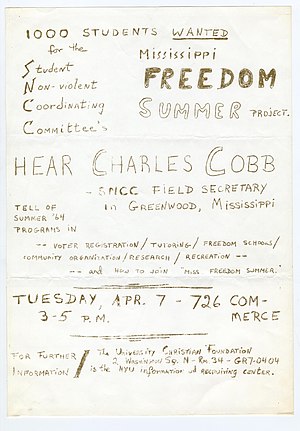Discover Your Roots
SIGN UPDiscover Your Roots
SIGN UPThe name Freedom is of American origin and is a gender-neutral name meaning "Not In Captivity." It embodies the power and right to speak, act, and change without hindrance or restraint. In modern society, freedom is regarded as a fundamental right, encompassing freedom of speech, religion, and the press. In political discourse, it is associated with liberty and autonomy, often distinguished from countries ruled by dictatorships. The concept of freedom is also intricately connected to the idea of liberty, with subtle distinctions made between the two. Philosophers have explored the notions of "positive" and "negative" freedom, delving into the ability to fulfill one's purposes and the absence of arbitrary restraints. The name Freedom carries deep connotations of autonomy and liberation, evoking the essence of self-determination and the absence of oppressive forces.

The Freedom Riders were civil rights activists who challenged the non-enforcement of the United States Supreme Court decisions ruling that segregated public buses were unconstitutional. The first Freedom Ride left Washington, D.C., on May 4, 1961, and was scheduled to arrive in New Orleans on May 17. The Southern states had ignored the rulings, and the federal government did nothing to enforce them. The Freedom Riders challenged local laws or customs that enforced segregation in seating by riding interstate buses in the South in mixed racial groups. The violent reactions they provoked bolstered the credibility of the American Civil Rights Movement. The Congress of Racial Equality (CORE) sponsored most of the subsequent Freedom Rides, and some were also organized by the Student Nonviolent Coordinating Committee (SNCC). The Freedom Rides, beginning in 1961, followed dramatic sit-ins against segregated lunch counters conducted by students and youth throughout the South, and boycotts of retail establishments that maintained segregated facilities. The Freedom Riders' tactics included having at least one interracial pair sitting in adjoining seats and at least one black rider sitting up front. The rest of the team would sit scattered throughout the rest of the bus. The Freedom Rides were mostly focused on events that occurred during the spring and summer of 1961.

Freedom Summer, also known as Mississippi Freedom Summer, was a historic campaign launched by American civil rights activists in June 1964. The primary goal was to register as many African-American voters as possible in Mississippi, where Black people had been largely prevented from voting due to barriers to voter registration and Jim Crow laws. The project also established Freedom Schools, Houses, and community centers to support the local Black population. Organized by the Council of Federated Organizations (COFO), the initiative was led by Bob Moses, a field secretary of the Student Nonviolent Coordinating Committee (SNCC). The project built on earlier work, including the 1963 mock "Freedom Vote" organized by SNCC to demonstrate the will of Black Mississippians to vote. More than 1,000 out-of-state volunteers, predominantly white and from prestigious universities, participated in Freedom Summer alongside local Black Mississippians. The project's focus on Mississippi stemmed from its low percentage of registered African-American voters, reflecting the systematic disenfranchisement of Black people in the South. The initiative played a crucial role in the broader struggle for civil rights and voting equality in the United States.



All images displayed on this page are sourced from Wikipedia or Wikimedia Commons.We use these images under their respective Creative Commons or public domain licenses. Wherever applicable, author attributions and license information are provided. If you believe an image is used incorrectly or outside its license terms, please contact us so that we can review and correct the issue.